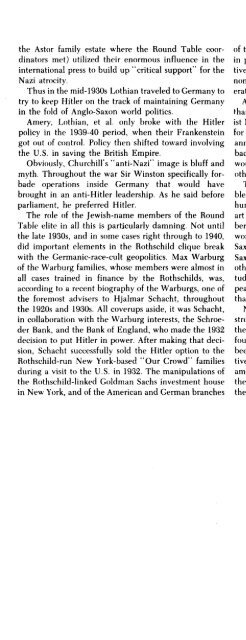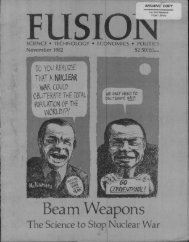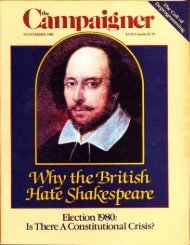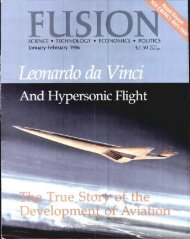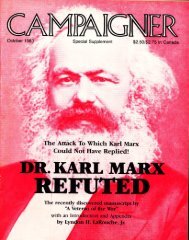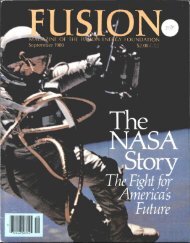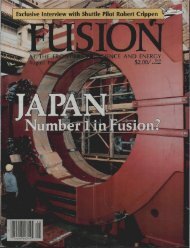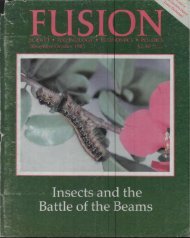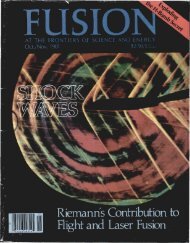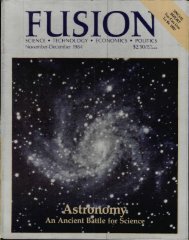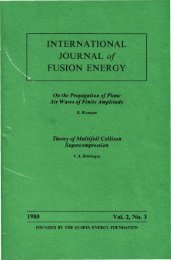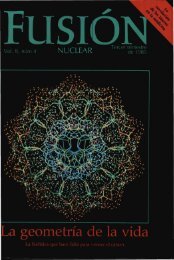Create successful ePaper yourself
Turn your PDF publications into a flip-book with our unique Google optimized e-Paper software.
the Astor family estate where the Round Table coordinators<br />
met) utilized their enormous influence in the<br />
international press to build up 'critical support" for the<br />
Nazi atrocity.<br />
Thus in the mid-1930s Lothian traveled to Germany to<br />
try to keep Hitler on the track of maintaining Germany<br />
in the fold of Anglo-Saxon world politics.<br />
Amery, Lothian, et al. only broke with the Hitler<br />
policy in the 1939-40 period, when their Frankenstein<br />
got out of control. Policy then shifted toward involving<br />
the U.S. in saving the British Empire.<br />
Obviously, Churchill's "anti-Nazi" image is bluff and<br />
myth. Throughout the war Sir Winston specifically forbade<br />
operations inside Germany that would have<br />
brought in an anti-Hitler leadership. As he said before<br />
parliament, he preferred Hitler.<br />
<strong>The</strong> role of the Jewish-name members of the Round<br />
Table elite in all this is particularly damning. Not until<br />
the late 1930s, and in some cases right through to 1940,<br />
did important elements in the Rothschild clique break<br />
with the Germanic-race-cult geopolitics. Max Warburg<br />
of the Warburg families, whose members were almost in<br />
all cases trained in finance by the Rothschilds, was,<br />
according to a recent biography of the Warburgs, one of<br />
the foremost advisers to Hjalmar Schacht, throughout<br />
the 1920s and 1930s. All coverups aside, it was Schacht,<br />
in collaboration with the Warburg interests, the Schroe¬<br />
der Bank, and the Bank of England, who made the 1932<br />
decision to put Hitler in power. After making that decision,<br />
Schacht successfully sold the Hitler option to the<br />
Rothschild-run New York-based "Our Crowd" families<br />
during a visit to the U.S. in 1932. <strong>The</strong> manipulations of<br />
the Rothschild-linked Goldman Sachs investment house<br />
in New York, and of the American and German branches<br />
of the Warburg families, were in large part instrumental<br />
in putting the Krupp and I.G. Farben interests respectively<br />
on an irreversible course of support for Nazi economics,<br />
against the Rapallo course of East-West cooperation<br />
for the industrialization for Germany.<br />
A concluding note on the Chamberlains. It is of more<br />
than passing interest that Nazi-fawning, anti-communist<br />
Neville Chamberlain was sent out to marshal support<br />
for Zionism among English Jews in 1917 after the<br />
announcement of the Balfour Declaration. Said this<br />
backer of Hitler, "<strong>The</strong> existence of this new Jewish State<br />
would only add to the dignity and influence of Jews in<br />
other countries."<br />
<strong>The</strong> Chamberlain family, of course, had earlier been<br />
blessed with one of the great race-cult mystics of the past<br />
hundred years, Richard Wagner's in-law Houston Stewart<br />
Chamberlain. Yet more interesting is Joseph Chamberlain,<br />
father of Neville, and author of the following<br />
words: "I have been called the apostle of the Anglo-<br />
Saxon race, and I am proud of the title. I think the Anglo-<br />
Saxon race is as fine as any on earth. Not that I despise<br />
other races. <strong>The</strong>y have their several virtues and aptitudes,<br />
though I admit the aptitudes of my own race appeal<br />
to me most strongly. <strong>The</strong>re is, in fact, only one race<br />
that I despise — the Jews. <strong>The</strong>y are physical cowards."<br />
Not surprisingly, Joseph Chamberlain became<br />
strongly pro-Zionist as a result of meetings with Herzl. In<br />
the words of his biographer, Julian Amery (of the same<br />
foul Amery clan), "Hitherto his interest in Zionism had<br />
been chiefly humanitarian. He now saw in it more posi¬<br />
tive opportunities for British policy . . . . He was the first<br />
among British statesmen to see in Zionism both an end to<br />
the ancient Jewish problem and a means of advancing<br />
the interests of the British Empire."<br />
51


